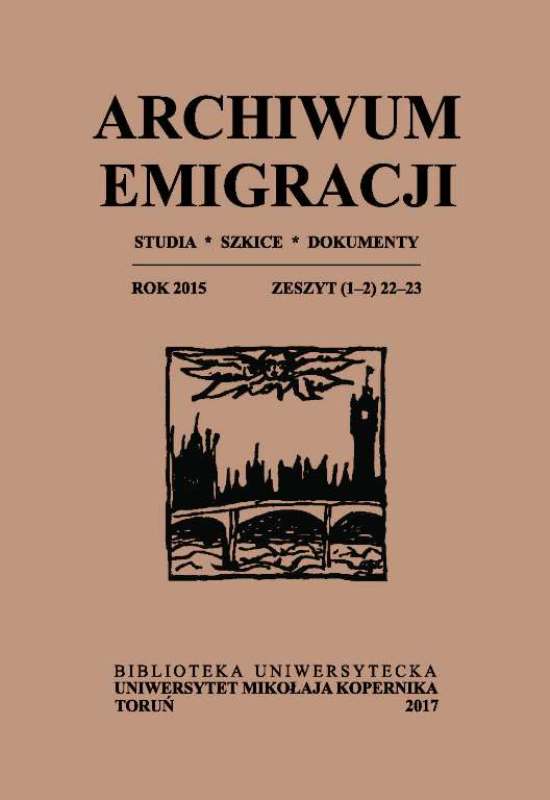Roman Palester. Kompozytor i intelektualista
DOI:
https://doi.org/10.12775/AE.2015.002Słowa kluczowe
Roman Palester, music compositions, emigration, exile, Radio Free Europe, reception.Abstrakt
ROMAN PALESTER: A COMPOSER AND INTELLECTUAL
Roman Palester’s life (1907–1989) can be divided into two periods, with a caesura in 1951, when the artist decided to live in exile and a year later started working as a reporter at the Polish Section of Radio Free Europe in Munich. As early as in the years 1931–1939 he was a successful composer whose works were performed both in Poland and abroad. He spent most of the Nazi occupation of Poland in Warsaw, however, he also stayed at the Przypkowski family home in Jedrzejów, and in the last years of the war in the countryside near Cracow and in Zakopane. He never stopped composing and the amount of compositions and their artistic value make him the most significant Polish artist of the time of the Nazi occupation. After the war he settled in Cracow, where he was nominated deputy vice-chancellor of the State Music Highschool and became a teacher of a composition class; he was also the vice-president of the Polish Composers’ Association and juror at the International Society for Contemporary Music. Although his compositions were often performed and his prestige constantly increased, Palester could not come to terms with the political changes in Poland, which allowed the authorities to interfere in the work of musical institutions and forced artistic expression into the aesthetics of “social realism.” He left for Paris as early as 1947. Initially, he maintained contacts with his home country, but severed the ties in 1951 when he decided not to renew his passport of the Polish People’s Republic. After that his compositions could be neither performed nor published in Poland. His name was crossed out of the list of the Polish Composers’ Association and could not be mentioned in the press and other publications, while the music scores published earlier were destroyed. In 1952 Palester was offered a job at Radio Free Europe in Munich by Jan Nowak-‑Jeziorański and became director of the cultural section. In numerous radio programmes he commented on Polish music life, disapproving of the then cultural policies of the authorities and criticizing the composers’ servility. Throughout his twenty-year professional career he never stopped composing and his best works were created at that time. In 1972 he again moved to Paris and devoted all his time to music. His compositions, virtually unknown in Poland, were becoming increasingly popular. Since 1977 his name has not been censored any longer and his music has been performed again, his works published and albums recorded. Nevertheless, the thirty years since his death hardly compensate for the long lasting period of silence. Palester’s music, despite its significance and artistic value, remains surprisingly little known.
Pobrania
Opublikowane
Jak cytować
Numer
Dział
Statystyki
Liczba wyświetleń i pobrań: 1006
Liczba cytowań: 0



